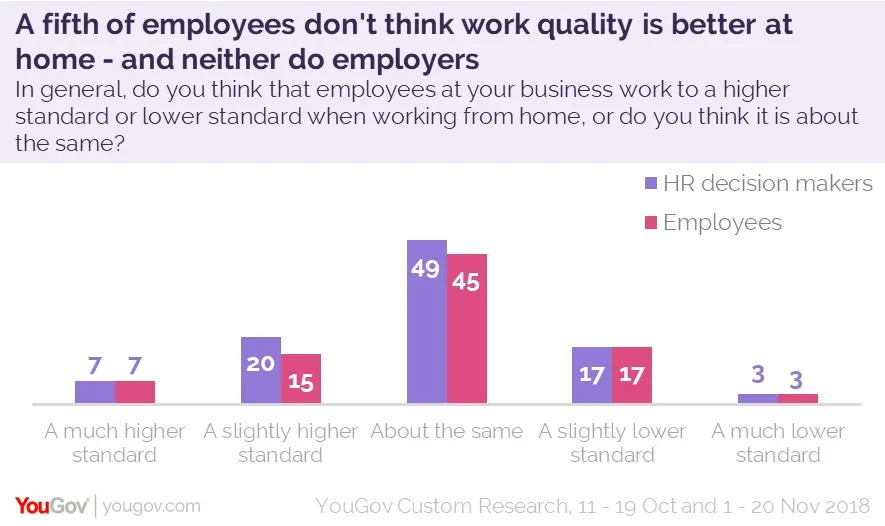More and more staff and companies are embracing working from home, cutting down on commuting time, costs and stress. But does it achieve the same results as working in the office?
New research by YouGov Omnibus reveals that a fifth (20%) of HR managers believe that staff work to a slightly higher standard at home than they do in the office, and a further 7% believe they work to a “much higher” standard.
Employees are slightly less optimistic about the practise, with only 15% believing it produces a higher standard of work.
However, almost half of both groups (49% of HR decision makers and 45% of employees) think that it has no effect at all on output.
In fact, only 27% of HR decision makers think that employees who work from home produce a higher standard of work than in the office. A fifth of both groups (20%) think that the standard of work produced is lower, with 3% classing work standards at home as “much lower” than in the office.
Employees of companies that have working from home policies also seem to share this view: 45% don’t think that their location affects the quality of their output, and less than a quarter (22%) think that working from home improves their productivity.

Most business encourage working from home - in fact, 7 in 10 businesses (70%) do, compared to just 27% which actively discourage it.
Industries that discourage flexible working the most include hospitality and leisure (55%), and finance and accounting (34% discourage it a little). Unsurprisingly, businesses with more employees to spare (+ 250) support working from home more than smaller businesses with 50 employees or less (80% vs 67%).
However, when asked the same question, just over half of employees from companies with work from home policies say that they are encouraged to make use of this policy (51%), with a third saying they are actively discouraged from doing so (32%).
Photo: Getty
See the full results: HR Decision Makers and Employees
Find out more about Omnibus Research










